This class of Climate Catalysts was announced in November 2020:
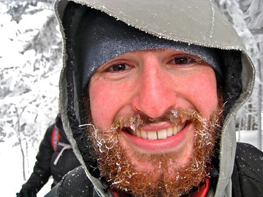 RJ Adler is the founder of Easy A House, and the Business Development Director for Wheel Pad. Previously he worked at SunCommon and the Keewaydin Foundation. He’s lived in VT since 2008 mostly in Middlebury, but followed his heart to Central VT to live with his wife and their new cat.
RJ Adler is the founder of Easy A House, and the Business Development Director for Wheel Pad. Previously he worked at SunCommon and the Keewaydin Foundation. He’s lived in VT since 2008 mostly in Middlebury, but followed his heart to Central VT to live with his wife and their new cat.
Project: Decrease the housing crunch by building an innovative financing mechanism for people to build accessory dwelling units in their backyard.
 Karen Blakelock works as an Energy Efficiency Coach with Capstone Community Action in their Weatherization department. She earned her master’s in Environmental Law and Policy from Vermont Law School. While a student, she interned with the Necrason Group, a lobbying firm where she got to track energy and environmental policy through legislative committees.
Karen Blakelock works as an Energy Efficiency Coach with Capstone Community Action in their Weatherization department. She earned her master’s in Environmental Law and Policy from Vermont Law School. While a student, she interned with the Necrason Group, a lobbying firm where she got to track energy and environmental policy through legislative committees.
Project: Explore the opportunities from all over the state to collect and eliminate R-12 refrigerants, a potent greenhouse gas with a high global warming potential.
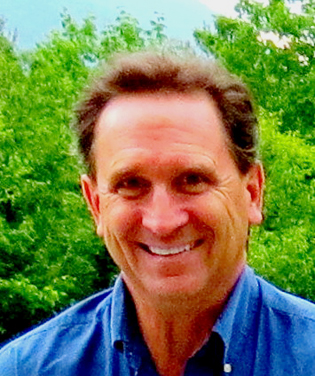 Jeff Dexter was born in Beacon, NY, and has lived in several different places across the Northeast. Over the years, he’s worked in for a number of companies, including IBM, The American Red Cross, and the Dale Carnegie Foundation. Jeff first came to Vermont in 2012, and has been actively involved over the last couple years in a number of local climate-related initiatives and is current chair of the Sunderland Energy Committee. He's also coached youth baseball for many years, and remains actively involved in the SW Vermont Pickleball scene.
Jeff Dexter was born in Beacon, NY, and has lived in several different places across the Northeast. Over the years, he’s worked in for a number of companies, including IBM, The American Red Cross, and the Dale Carnegie Foundation. Jeff first came to Vermont in 2012, and has been actively involved over the last couple years in a number of local climate-related initiatives and is current chair of the Sunderland Energy Committee. He's also coached youth baseball for many years, and remains actively involved in the SW Vermont Pickleball scene.
Project: Develop effective strategies to engage the community of Sunderland about energy opportunities. A particular focus is on engaging the public given the constraints posed by Covid-19.
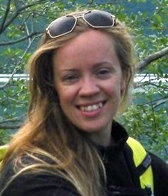 Megan Durling is a teacher and co-director at East Burke School in the Northeast Kingdom of Vermont. A New England native, she has worked as an educator in diverse communities across the country over the last decade, coming to the Burke area with her husband and two dogs at the close of 2018. She holds a B.A. in Anthropology and Environmental Studies from Mount Holyoke College along with an M.A. in Liberal Arts from St. John's College.
Megan Durling is a teacher and co-director at East Burke School in the Northeast Kingdom of Vermont. A New England native, she has worked as an educator in diverse communities across the country over the last decade, coming to the Burke area with her husband and two dogs at the close of 2018. She holds a B.A. in Anthropology and Environmental Studies from Mount Holyoke College along with an M.A. in Liberal Arts from St. John's College.
Project: Cultivate the region's first food forest in the parking lot of a 1800s schoolhouse with colleagues and students. Once established, the food forest will be a demonstration center for regenerative agriculture, actively restoring damaged soil on campus while providing food to the community for decades to come.
Jeff Gephart is retiring after 28 years working in the energy efficiency sector, both as president of Vermontwise Energy Services, where he specialized in energy & efficiency design for real estate market transformation, and then as a contractor for Efficiency Vermont, where he worked with architects and builders to meet EVT green building standards. He led the Vermont Green Home Alliance, an association seeking value for energy efficiency and renewable energy in the real estate market. He lives in Rochester and was recently appointed Town Energy Coordinator. Jeff has two children and four grandchildren.
Project: Set bench-marks for and identify improvement opportunities related to the energy performance of municipal assets (e.g., offices, fire stations, library, sewer and water, etc.), and to identify non-building-based energy use or needs (e.g., mowing, maintenance equip-ment, EV charging stations, safer bicycle access, community solar, etc.)
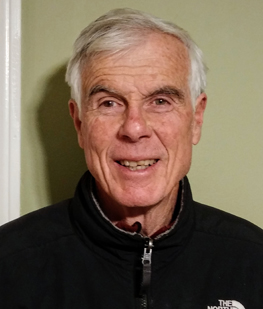 Jim Hand is currently “retired” from a 43-year-long career operating a Chevrolet/VW dealership with his brother in Manchester Center. He is a current member of the Dorset and BCRC Energy Committees and is always learning about renewable energy, energy efficiency, and climate issues, constructing and developing solar systems with his two sons to keep busy. A long ago graduate of Middlebury College, he lives in E Dorset with his wife Marilyn.
Jim Hand is currently “retired” from a 43-year-long career operating a Chevrolet/VW dealership with his brother in Manchester Center. He is a current member of the Dorset and BCRC Energy Committees and is always learning about renewable energy, energy efficiency, and climate issues, constructing and developing solar systems with his two sons to keep busy. A long ago graduate of Middlebury College, he lives in E Dorset with his wife Marilyn.
Project: With help of his sons, shift the local elementary school’s thermal needs from an annual consumption of 10,000 gallons of fuel oil to a cold-climate heat pump-based system and to develop a win-win financial model for both local schools and investors.
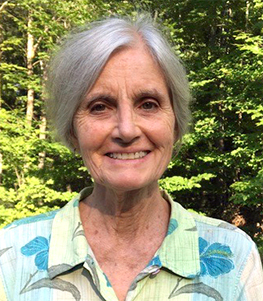 Catherine Lowther has been with Goddard College for 23 years, teaching courses on climate change, helping the college reach carbon neutrality in 2018, and currently chairs the Sustainability Committee. She is a member of Al Gore’s Climate Reality Corps, and in July 2020, she was a mentor in the first virtual Climate Reality Training that had 10,000 participants from all over the world. She is on the Hunger Mountain Co-op Council and the Sustainable Montpelier Coalition. She is very grateful to have lived in Central Vermont for most of her life.
Catherine Lowther has been with Goddard College for 23 years, teaching courses on climate change, helping the college reach carbon neutrality in 2018, and currently chairs the Sustainability Committee. She is a member of Al Gore’s Climate Reality Corps, and in July 2020, she was a mentor in the first virtual Climate Reality Training that had 10,000 participants from all over the world. She is on the Hunger Mountain Co-op Council and the Sustainable Montpelier Coalition. She is very grateful to have lived in Central Vermont for most of her life.
Project: Develop more climate change education in VT high schools so that students understand the urgency of the climate situation and can reduce their emissions, become more energy efficient, and make their lives resilient to the changing climate.
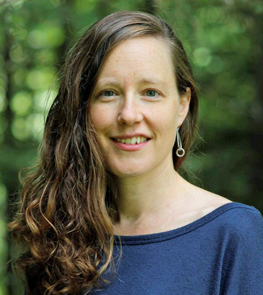 Corrie Miller is dedicated to conserving the natural resources which are the fabric of our vibrant communities. She earned a B.S. in Biology from Vanderbilt University and a M.S from UVM’s Field Naturalist program. She’s led non-profit programs and organizations that bring people together to strategically plan and achieve meaningful conservation outcomes. She’s served as the Executive Director of Friends of the Mad River since 2014 and is most inspired as she builds coalitions for change. She lives in Fayston, has a weakness for all things bread and sugar, is prone to hysterics of laughter, and most enjoys time outdoors.
Corrie Miller is dedicated to conserving the natural resources which are the fabric of our vibrant communities. She earned a B.S. in Biology from Vanderbilt University and a M.S from UVM’s Field Naturalist program. She’s led non-profit programs and organizations that bring people together to strategically plan and achieve meaningful conservation outcomes. She’s served as the Executive Director of Friends of the Mad River since 2014 and is most inspired as she builds coalitions for change. She lives in Fayston, has a weakness for all things bread and sugar, is prone to hysterics of laughter, and most enjoys time outdoors.
Project: Build awareness and a network of relationships and trust across the Mad River Valley community that can both catalyze and sustain collective climate action across the community.
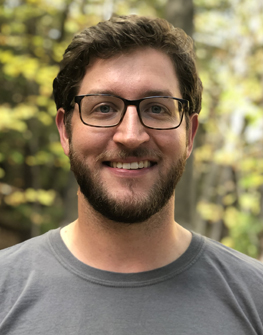 Kevin O’Brien serves as an ECO AmeriCorps member with the town of Brattleboro's sustainability coordinator. Prior to COVID he was with his wife in Zambia serving as a Peace Corps volunteer doing Agroforestry initiatives. He comes to Vermont after growing up in the Midwest, attending Purdue University for wildlife biology, and spending time in the mountains of New Mexico, North Carolina, and Montana. He is working on settling into life stateside in a town with the same population size as the village in Zambia.
Kevin O’Brien serves as an ECO AmeriCorps member with the town of Brattleboro's sustainability coordinator. Prior to COVID he was with his wife in Zambia serving as a Peace Corps volunteer doing Agroforestry initiatives. He comes to Vermont after growing up in the Midwest, attending Purdue University for wildlife biology, and spending time in the mountains of New Mexico, North Carolina, and Montana. He is working on settling into life stateside in a town with the same population size as the village in Zambia.
Project: Gain understanding for how Brattleboro can holistically decide on its sustainability priorities. Meanwhile he'll be working on bolstering local resiliency through sharing economies by way of creating a tool and seed library.
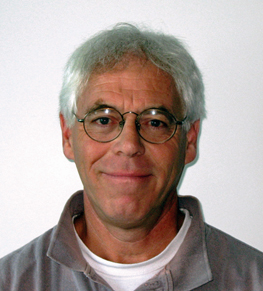 David Raphael is a licensed landscape architect, planner and graphic designer who has been on the UVM faculty for over 30 years. He is Principal and founder of LandWorks, an interdisciplinary planning and design firm with a focus on community planning and design, environmental graphics and communication, renewable energy, and public spaces, including state and national parks. He is the longtime chair of the Panton VT Planning Commission and DRB, the town tree warden, and a delegate to the Regional Planning Commission. He has been a board member of the VT State Craft Center, the Lake Champlain Land Trust and currently serves on the VT Urban and Community Forestry Council. He likes to spend time outdoors and lives in the same home he and his wife Diana built 41 years ago. He is most proud of his 3 children and 6 grandkids.
David Raphael is a licensed landscape architect, planner and graphic designer who has been on the UVM faculty for over 30 years. He is Principal and founder of LandWorks, an interdisciplinary planning and design firm with a focus on community planning and design, environmental graphics and communication, renewable energy, and public spaces, including state and national parks. He is the longtime chair of the Panton VT Planning Commission and DRB, the town tree warden, and a delegate to the Regional Planning Commission. He has been a board member of the VT State Craft Center, the Lake Champlain Land Trust and currently serves on the VT Urban and Community Forestry Council. He likes to spend time outdoors and lives in the same home he and his wife Diana built 41 years ago. He is most proud of his 3 children and 6 grandkids.
Project: Lead a community effort to develop a master plan for Arnold Bay, an historic site and Panton’s boat launch and beach on Lake Champlain. The goal is to develop enhancements and improvements that will embrace, incorporate and/or address 1) green infra-structure, 2) post COVID recreational strategies, 3) lakeshore resiliency and water quality and 4) universal design and accessibility for all users.
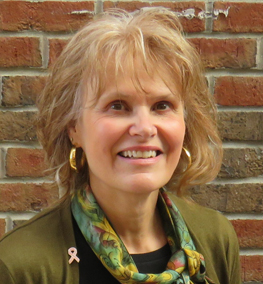 Laural Ruggles MBA, MPH is the VP of Marketing and Community Health Improvement at Northeastern Vermont Regional Hospital. Laural has 28 years’ experience in healthcare administration, including medical office operations, marketing, and community health improvement. She is an active member of NEK Prosper – Caledonia and S Essex Accountable Health Community, a collaboration of community partners working to improve health by addressing the root causes of poor health. She also has a BS in Environmental Science from Northern Vermont University.
Laural Ruggles MBA, MPH is the VP of Marketing and Community Health Improvement at Northeastern Vermont Regional Hospital. Laural has 28 years’ experience in healthcare administration, including medical office operations, marketing, and community health improvement. She is an active member of NEK Prosper – Caledonia and S Essex Accountable Health Community, a collaboration of community partners working to improve health by addressing the root causes of poor health. She also has a BS in Environmental Science from Northern Vermont University.
Project: Create a blueprint for hospitals and health systems to improve health by improving the home environment through weatherization and energy efficiency initiatives.
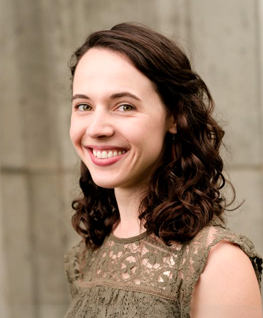 Molly Smith is the Program Coordinator at the Institute for Energy and the Environment at Vermont Law School where she handles the day to day operations, and serves as co-lead on a research project dealing with clean transportation strategies in Hartford. Molly is Chair of the Hartford Energy Commission, currently focused on developing improved weatherization campaigns and clean transportation initiatives. Molly got her BS from Cornell University and her Masters in Sustainability and Environmental Management from Harvard Extension School. She lives in White River Jct with her partner and dog and enjoys running, practicing yoga, and watching the birds empty her huge feeders more often than is normal for birds their size.
Molly Smith is the Program Coordinator at the Institute for Energy and the Environment at Vermont Law School where she handles the day to day operations, and serves as co-lead on a research project dealing with clean transportation strategies in Hartford. Molly is Chair of the Hartford Energy Commission, currently focused on developing improved weatherization campaigns and clean transportation initiatives. Molly got her BS from Cornell University and her Masters in Sustainability and Environmental Management from Harvard Extension School. She lives in White River Jct with her partner and dog and enjoys running, practicing yoga, and watching the birds empty her huge feeders more often than is normal for birds their size.
Project: Continue the progress Hartford has made in the green energy space and work on ways the town can encourage residents and businesses to transition to cleaner vehicles. Her goal is to work on awareness campaigns involving rebate opportunities through Efficiency VT, data from Drive Electric VT and other sources to encourage residents go purchase hybrid or electric vehicles, as well as encourage the town to adopt the STRETCH code and other municipal ordinances and codes supportive of EV infrastructure.
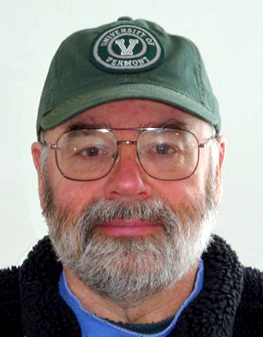 Jim Stiles is mostly retired and taking classes at UVM as a route toward a masters degree relating to his interest in climate havens. He just published his first novel, Rough Road, with a climate change theme. He continues efforts to make his home a better climate haven. He had careers in high tech and in construction. He grew up in Newark, NY (near Rochester), graduated from Marlboro College in Ecology and Environmental Science and did graduate work at MIT in Construction Engineering and Project Management. Jim lives with his wife in St. Albans working in his garden, his shops, taking courses at UVM, and on a number of writing projects.
Jim Stiles is mostly retired and taking classes at UVM as a route toward a masters degree relating to his interest in climate havens. He just published his first novel, Rough Road, with a climate change theme. He continues efforts to make his home a better climate haven. He had careers in high tech and in construction. He grew up in Newark, NY (near Rochester), graduated from Marlboro College in Ecology and Environmental Science and did graduate work at MIT in Construction Engineering and Project Management. Jim lives with his wife in St. Albans working in his garden, his shops, taking courses at UVM, and on a number of writing projects.
Project: Develop an alternative approach to addressing climate change. Instead of focusing only on a global solution to a global problem, the climate havens he’s working on do so in a way that also improves prospects for prosperity for smaller groups of people as they also improve global prospects.
 Scott Weathers is a Senior Policy Specialist at the Good Food Institute, where he focuses on state legislative issues related to the emerging “alternative protein” industry. He came to GFI from Compassion in World Farming-USA, where he was a Strategic Partnerships Manager, establishing CIWF’s first-ever program focused on plant-based proteins. Scott’s work has appeared in The New York Times, The Guardian, Vox, NowThis, Civil Eats, and more. He holds a Master of Science from the Harvard T.H. Chan School of Public Health.
Scott Weathers is a Senior Policy Specialist at the Good Food Institute, where he focuses on state legislative issues related to the emerging “alternative protein” industry. He came to GFI from Compassion in World Farming-USA, where he was a Strategic Partnerships Manager, establishing CIWF’s first-ever program focused on plant-based proteins. Scott’s work has appeared in The New York Times, The Guardian, Vox, NowThis, Civil Eats, and more. He holds a Master of Science from the Harvard T.H. Chan School of Public Health.
Project: Create an event series for Sierra Club members and the public to adopt more climate-friendly behaviors, such as purchasing electric vehicles.
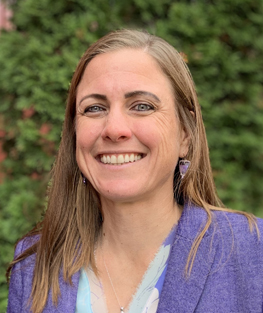 Jenn Wood is a tireless advocate for climate action, social equity, and inclusive stakeholder engagement. Over her career she has worked in the renewable energy industry, low-income weatherization, expanding rural public transit options, mentoring climate activists in grassroots strategies, supporting women into the green jobs market, educating refugees on energy efficiency measures, leading global wilderness adventures, and beyond. Jenn serves on the boards of Vermont Businesses for Social Responsibility (VBSR) and CarShare. She lives in Grand Isle with her husband and rescued cat where she loves spending time outside running, biking, kayaking, sailing, and skiing.
Jenn Wood is a tireless advocate for climate action, social equity, and inclusive stakeholder engagement. Over her career she has worked in the renewable energy industry, low-income weatherization, expanding rural public transit options, mentoring climate activists in grassroots strategies, supporting women into the green jobs market, educating refugees on energy efficiency measures, leading global wilderness adventures, and beyond. Jenn serves on the boards of Vermont Businesses for Social Responsibility (VBSR) and CarShare. She lives in Grand Isle with her husband and rescued cat where she loves spending time outside running, biking, kayaking, sailing, and skiing.
Project: Work with a number of partners in the Champlain Islands to increase awareness, and access to e-bike options, and better integrate e-bike infrastructure throughout the Islands’ transportation systems.
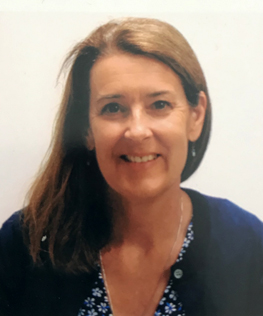 Margaret Woodruff has been director of the Charlotte Library since 2011. Prior, she served as collections manager and consultant in Asian and Asian Export Art collections. Margaret graduated from Swarthmore College and earned a master’s in Japanese cultural history from Harvard University. She lives in Charlotte with her husband in an old farmhouse where they raised three daughters. She serves on the board of the Charlotte Grange, Transition Town and is a found member of Charlotte Community Partners.
Margaret Woodruff has been director of the Charlotte Library since 2011. Prior, she served as collections manager and consultant in Asian and Asian Export Art collections. Margaret graduated from Swarthmore College and earned a master’s in Japanese cultural history from Harvard University. She lives in Charlotte with her husband in an old farmhouse where they raised three daughters. She serves on the board of the Charlotte Grange, Transition Town and is a found member of Charlotte Community Partners.
Project: With guidance from Community Resilience Organizations, the Charlotte Library, and partners, develop a tool to assess Charlotte’s resilience with a focus on all the issues that affect their town’s strength and sustainability. They believe their success will be determined first by the level of engagement with the assessment and second by how we well they identify and act on issues for the whole town.
